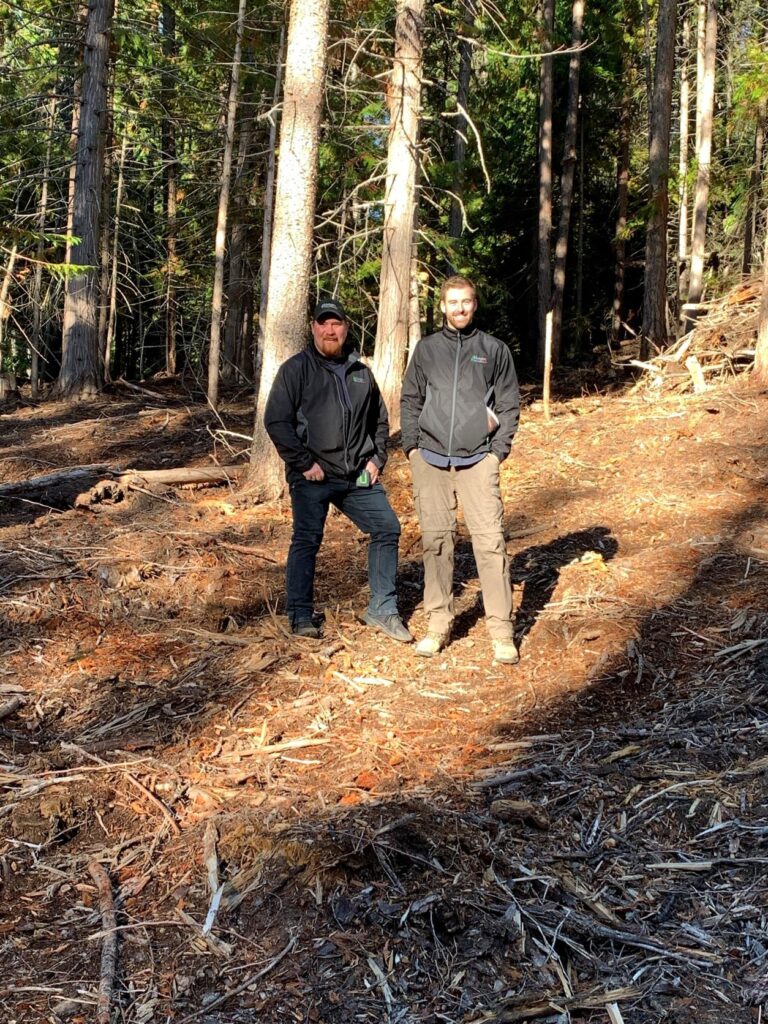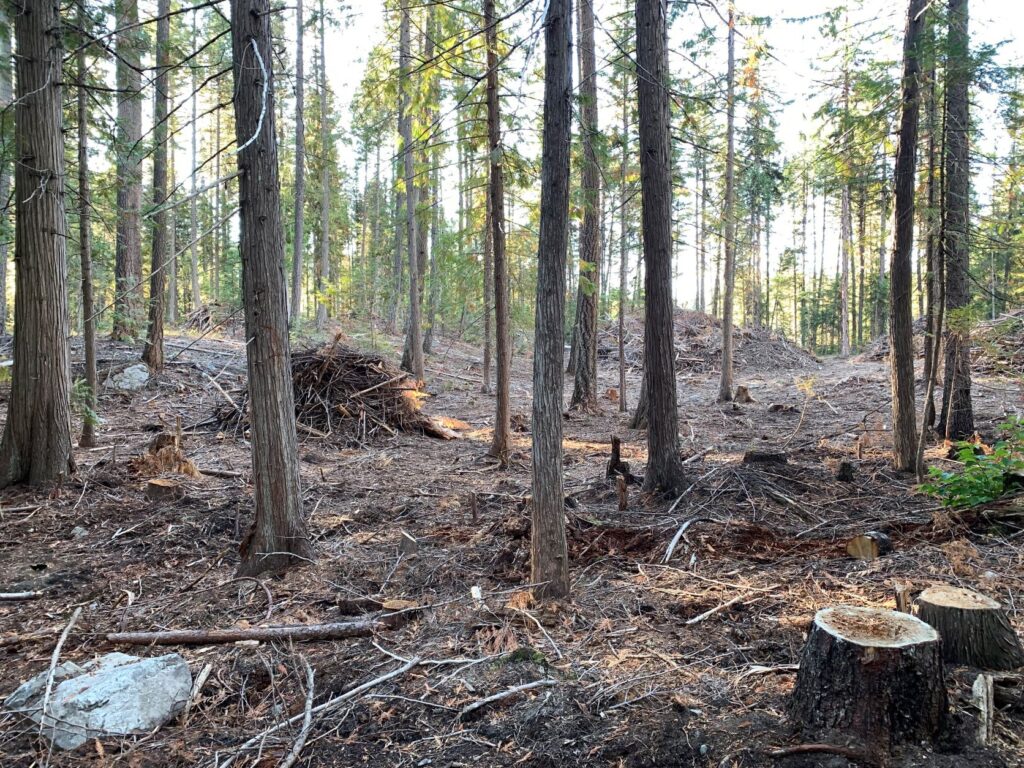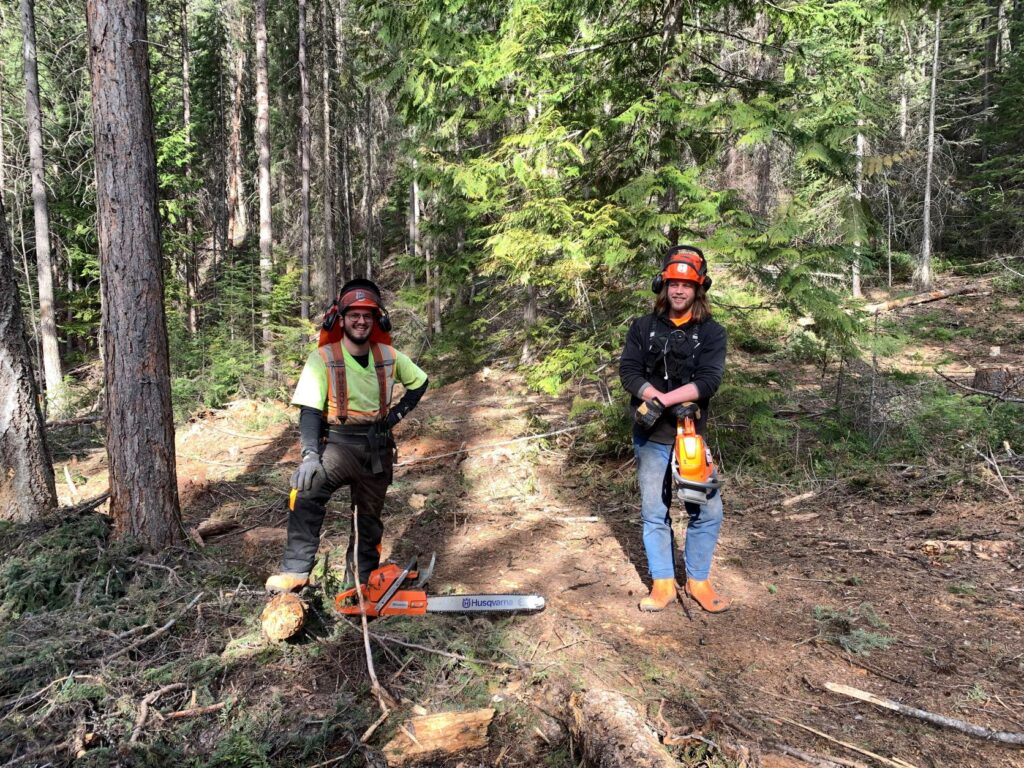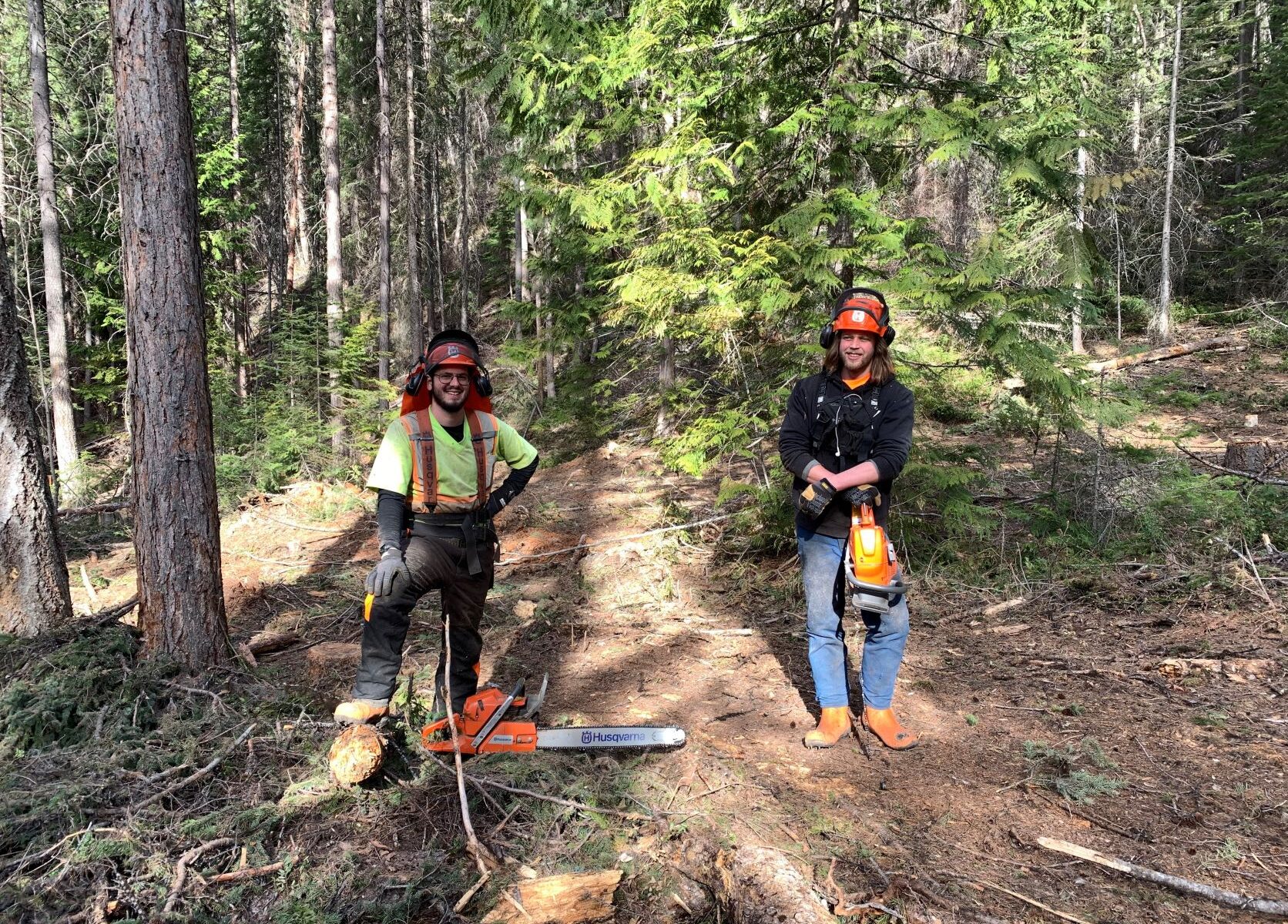Greenwood, B.C. – a popular recreational area 20 minutes north of Greenwood is now safer for people thanks to a forestry initiative. A significant amount of burnable wood was removed, while also protecting some old growth trees, providing employment, and reducing greenhouse gas emissions. A 32-hectare area in the West Boundary Community Forest (WBCF) where the project work was done is situated by popular Jewel Lake. Thanks to a grant from the Forest Enhancement Society of BC (FESBC) for $254,100, the project reduced amounts of flammable wood, which increased safety for residents and visitors in the event of a fire.
“This project has been very collaborative from the start,” said Ross Elliot, Director on the Board of the WBCF. “We have consulted with our First Nations partners from the Osoyoos Indian Band who did initial field visits and supplied crews to do some of the hand treatments. We have connected with leaders from the Jewel Lake Environmental Protection Society, BC Parks, and Vaagen Fibre Canada. This project has shown how when we engage various groups, we get some of the best ideas coming forward in how to work together. We are appreciative of FESBC for the grant which got this project going in the first place.”
The FESBC grant enabled wildfire risk reduction and, at the same time, assisted in using waste wood which otherwise would have been piled and burned. The outcome for locals and tourists alike is the opportunity to not only enjoy interpretive hiking trails, but also the added comfort knowing emergency services have increased access to the area.
“With the FESBC funding for this work, we are able to better protect area homes and recreational infrastructure from a catastrophic wildfire while maintaining the aesthetics across the landscape.”
Dan Macmaster, RPF, Forest Manager, West Boundary Community Forest
“We’ve gone through a challenging summer with wildfires in many parts of the province and close to home here in the Kootenays,” said Dan Macmaster, RPF, Forest Manager of the West Boundary Community Forest. “With the FESBC funding for this work, we are able to better protect area homes and recreational infrastructure from a catastrophic wildfire while maintaining the aesthetics across the landscape. The onerous task of removing fuels while preserving old growth trees would not have been possible without FESBC funding.”
Pleased with the level of collaboration and work that has been accomplished to date is Gord Pratt, RPF, Operations Manager, FESBC.
“The accumulation of flammable wood in the forest resulted in the Jewel Lake area being classified as a fire-susceptible-ecosystem. The build-up of fibre was due in part to decades of fire suppression activities in the area,” said Pratt. “The initial work to engage community stakeholders created the local support and understanding of the scope of work required to better protect communities from wildfires. The project has shown that wildfire risk reduction work coupled with community engagement can achieve positive win-win environmental and social benefits.”

Dan Macmaster, and Peter Flett, WBCF 
Jewel Lake 
LP Martin and Nick Kliener
The West Boundary Community Forest employs 100% of its contractors from rural communities, creating revenue for the local economy. Fibre removed from the project site will be hauled to the Midway Chipper yard with sawlogs sold to the local mills of Vaagen Fibre Canada and Interfor. Fibre that cannot be safely transported will be scattered on site at low density and logging debris unable to be hauled or spread will be put in a burn pile and disposed of this fall.
For an interview with FESBC, contact:
Aleece Laird, FESBC Communications Liaison | communications@fesbc.ca | 250.574.0221
For an interview with the West Boundary Community Forest, contact:
Dan Macmaster, West Boundary Community Forest Manager | dmacmaster@vaagen.ca | 250.528.0344

